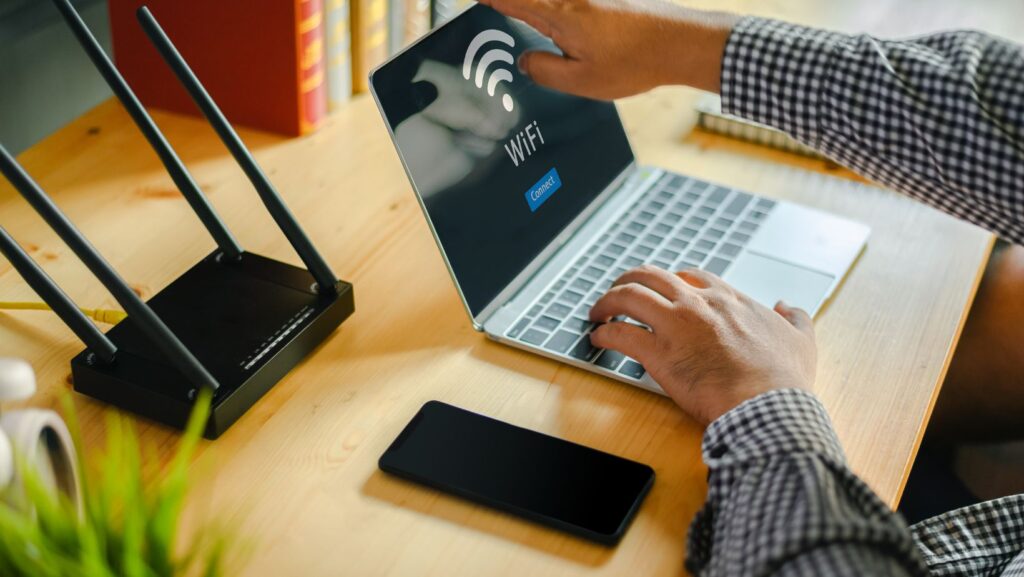
In a bustling household, internet demands can skyrocket, with activities like streaming, gaming, video conferencing, and smart device usage happening simultaneously. Choosing the right internet plan is essential to ensure everyone stays connected without disruptions. Opting for fast home internet can make a significant difference, but selecting the best plan requires careful consideration of several factors. Here’s a guide to finding the ideal internet plan for your household.
Assess Your Household’s Internet Needs
The first step in choosing an internet plan is understanding how your household uses the internet. Different activities and devices require varying levels of speed and bandwidth.
Key Considerations:
- Number of Users: How many people will be online at the same time?
- Types of Activities: Is your household primarily browsing the web, or does it include streaming in 4K, online gaming, or remote work?
- Device Count: Count all devices that connect to the internet, including laptops, tablets, smartphones, smart TVs, and IoT devices like security cameras or smart thermostats.

For example, a household with four users streaming in HD and gaming will need a faster plan compared to a home with occasional browsing and emails.
Understanding Internet Speed Requirements
Internet speed is measured in Mbps (megabits per second). To choose the right plan, you’ll need a speed that matches your household’s demands.
General Speed Guidelines:
- Basic Browsing and Email: 1-5 Mbps per user
- HD Streaming: 5-8 Mbps per stream
- 4K Streaming: 25 Mbps per stream
- Online Gaming: 10-25 Mbps per gamer
- Video Conferencing: 5-10 Mbps per user
For a busy household, plans offering at least 100 Mbps are often sufficient, but higher speeds may be necessary for larger families or those with heavy internet use.
Evaluate Internet Connection Types
Different types of internet connections offer varying levels of speed, reliability, and cost. Understanding these options can help you choose the best plan for your household.
Connection Types:
- Fiber-Optic: The fastest and most reliable option, ideal for households with high data demands.
- Cable: Offers high speeds and widespread availability but may slow during peak hours.
- DSL: More affordable but slower and less reliable for heavy usage.
- Satellite: Suitable for rural areas but often comes with high latency and lower speeds.
- 5G or Fixed Wireless: Emerging technologies that offer high speeds in specific areas.
Fiber is typically the best choice for busy households, but cable is a solid alternative if fiber isn’t available.
Consider Data Caps and Usage Limits
Some internet plans come with data caps, which limit the amount of data you can use each month. Exceeding these caps may result in additional charges or throttled speeds.
Tips for Managing Data Caps:
- Choose a plan with unlimited data if your household streams, games, or downloads frequently.
- Monitor your monthly usage to ensure you’re not exceeding limits.
- Look for providers that offer high or no caps to avoid interruptions.
Optimize Your Home Network
Even with the right internet plan, poor network management can lead to slow speeds.

Optimizing your home setup ensures everyone can enjoy a smooth connection.
Tips for Optimization:
- Upgrade Your Router: Use a modern router that supports your plan’s maximum speed and can handle multiple devices.
- Use Ethernet for Key Devices: Wired connections provide more reliable speeds for gaming consoles, PCs, and smart TVs.
- Strategically Place Your Router: Position your router in a central location, free from obstructions, to improve Wi-Fi coverage.
- Use Extenders or Mesh Systems: For larger homes, these can eliminate dead zones and provide consistent coverage.
Compare Providers and Plans
Not all providers offer the same value. Take the time to compare plans, speeds, and prices from various providers in your area.
What to Look For:
- Speeds Offered: Ensure the provider can meet your household’s speed needs.
- Customer Reviews: Check for feedback on reliability and customer service.
- Promotions and Bundles: Look for deals that combine the internet with TV or phone services for savings.
Maximize Your Investment
Choosing the right internet plan for a busy household requires balancing speed, cost, and reliability. By assessing your household’s needs, evaluating providers, and optimizing your network, you can ensure everyone stays connected seamlessly. With the right fast home internet plan, your household can handle all its online activities without breaking a sweat.












